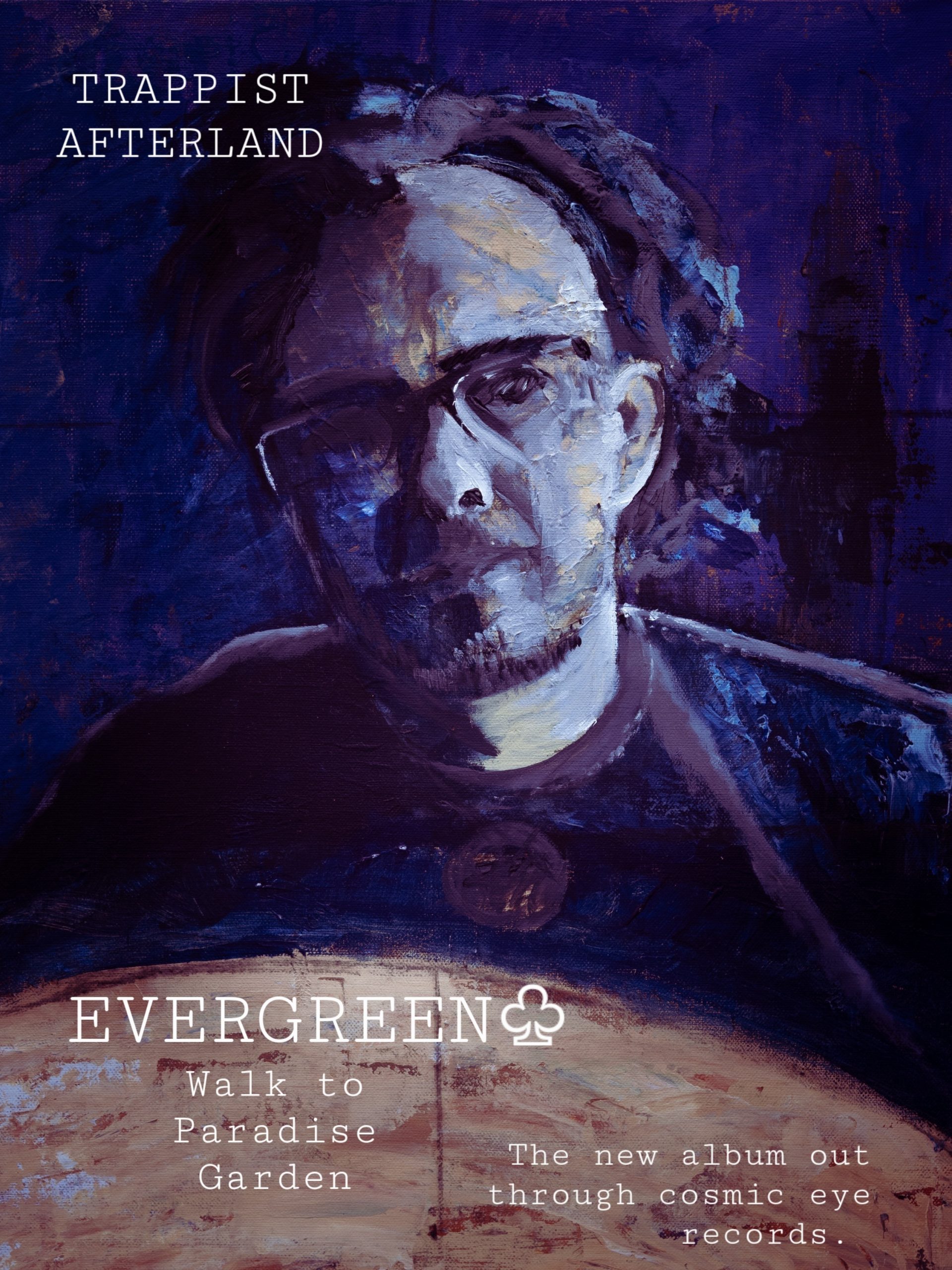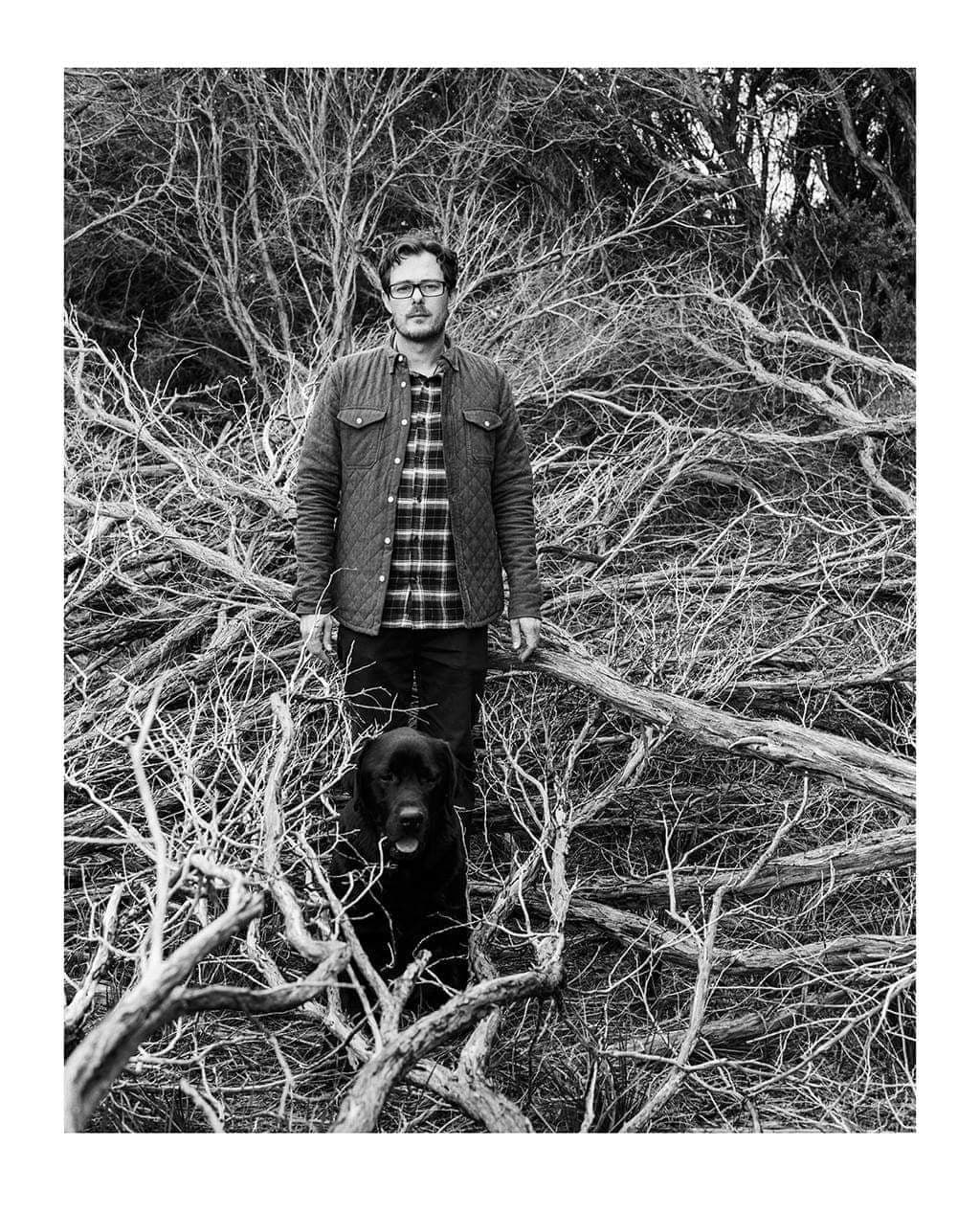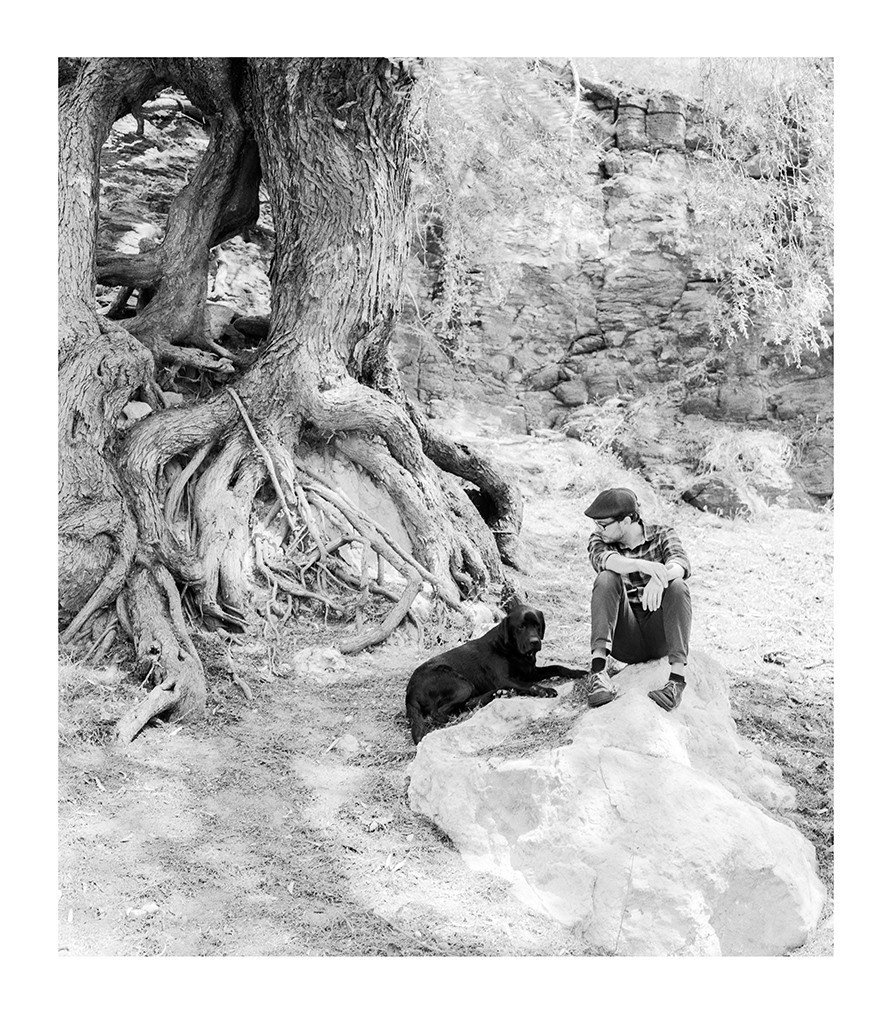Trappist Afterland’s latest album, Walk to Paradise Garden, is a profoundly moving work that masterfully intertwines traditional folk elements with an emotional depth rarely seen in contemporary music. This tenth album by Adam Geoffrey Cole’s brainchild sees the project’s signature transcendental folk sound elevated by a stunning lineup of collaborators, including UK guitar maestro Henry Parker, trad folk sensation Angeline Morrison, multi-instrumentalist and producer Tali Trow, and the visionary poet and singer David Tibet of Current 93. Long-time collaborators Anthony Cornish, Tom Warren, and Matt Malone also lend their seasoned artistry to the record, completing a musical ensemble as eclectic as it is poignant.

At its heart, Walk to Paradise Garden is an album born out of grief, transformation, and the desire to find beauty amidst despair. Written during the winter rains in the Adelaide hills, this collection of nine deeply evocative songs emerged from Cole’s personal experiences—his mother’s battle with dementia and eventual passing, the breakdown of his marriage, and his own return to Kiama, his hometown on Australia’s New South Wales South Coast. These circumstances imbue the record with a sense of quiet urgency, as Cole seeks solace in the fleeting nature of love and human connection.
Musically, Walk to Paradise Garden exists at the intersection of timeless folk tradition and daring experimentalism. Each song feels like a snapshot of raw emotion, steeped in the history of folk music but with a modern twist. The instrumentation is lush yet restrained, allowing the rich textures of acoustic guitars, ethereal vocals, and delicate string arrangements to take center stage.

Henry Parker’s exquisite guitar work provides a bedrock of intricate melodies, while Angeline Morrison’s haunting vocals add a spectral quality to the album’s more introspective moments. Tali Trow’s production is both meticulous and organic, lending a sense of cohesion to the album’s diverse sonic palette. David Tibet’s contributions as a poet and singer inject a sense of mysticism that complements Cole’s own spiritual lyricism, making each track feel like a meditation on life’s beauty and fragility.
The nine tracks that make up Walk to Paradise Garden are a testament to Cole’s ability to distill complex emotions into simple, heartfelt melodies. From the opening track’s gentle invocation of hope to the closing song’s reflective resignation, the album takes listeners on an emotional journey that is as cathartic as it is heartbreaking.
One standout is the title track, which encapsulates the album’s themes of love, loss, and renewal. Its bittersweet melody and poignant lyrics evoke a sense of longing that is impossible to shake. Another highlight is the contribution of Angeline Morrison on a track where her voice harmonizes beautifully with Cole’s, creating a song that feels both intimate and otherworldly.
The album’s emotional centerpiece, however, is its tribute to Cole’s mother. Written during the long, contemplative drives to visit her as her health declined, these songs carry the weight of his grief but also celebrate the bond they shared. It’s a raw and vulnerable moment that anchors the album’s themes of memory and impermanence.

While Walk to Paradise Garden is undeniably steeped in sorrow, it is far from a bleak record. Instead, it offers a message of resilience and renewal, echoing the album’s subtitle, Evergreen. Cole explores the idea that even in the darkest moments, new growth is possible—life continues, and beauty can be found in the most unexpected places.
This ethos is encapsulated in the album’s most uplifting moments, which celebrate the joy of being alive despite life’s inevitable hardships. The arrangements, though often sparse, radiate warmth and humanity, inviting listeners to find their own meaning in the songs.
With Walk to Paradise Garden, Trappist Afterland has delivered a work that defies time and trends. The album’s rich storytelling and impeccable musicianship ensure its place as a modern folk masterpiece, while its deeply personal themes resonate universally.
Fans of traditional folk, experimental music, and heartfelt songwriting alike will find much to love in this record. It’s an album that demands to be experienced in full, not just as a collection of songs but as a cohesive narrative of heartbreak, healing, and hope.
Ultimately, Walk to Paradise Garden is a celebration of life in all its complexity. By embracing both light and darkness, Adam Geoffrey Cole and his collaborators have created an album that feels deeply human—and one that will undoubtedly stand the test of time.
Connect with TRAPPIST AFTERLAND on
